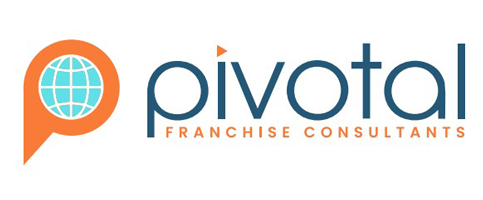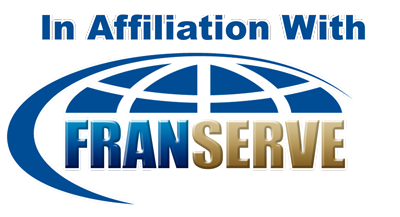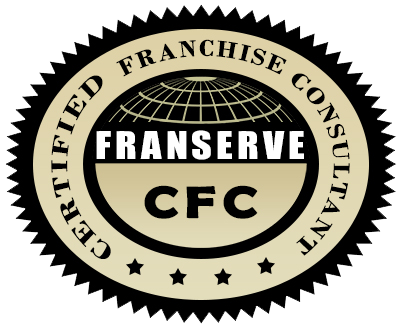Franchise Industry Glossary of Terms
Advertising Fee - Advertising Fee is the annual fee that is paid by the franchisee to the franchisor as his share of the corporate advertising expenditures. This advertising fee is charged by few franchisors only.
Advertising Fund - Another continuing periodic payment to the franchisor that, like the royalty payment, can be a fixed amount or a percentage of gross sales.
Agent - An agent is an individual appointed who can act on behalf of the person or entity. The corporation is legally bound by the actions of the agent.
Agreement - Agreement definition, Agreement is the 'contract' that signifies a franchise.
Arbitration - Arbitration is a way of resolving disputes by referring it to a third party which is selected by the parties.
Area Developer - A person or group who owns rights to a specific region to develop franchises. In most cases area developers may own unit franchises within their territory as well as assist the franchise in selling and supporting additional franchises for a share in the franchise fee and ongoing royalties.
Area Development Rights - The rights allotted to a franchisee to operate a number of franchises within a specified geographic area.
Assignment Fees - The monthly fees paid by the franchisee to the franchise company for expenses incurred by the company like corporate marketing and advertising.
Broker - A broker is a intermediary between the buyer and the seller. He can represent either the buyer or the seller, and in some cases even both the parties.
Business Format Franchise - In Business Format Franchise the franchisor gives the permission to the franchisee for use of product, service and trademark. The entire business format is also taught to the franchisee including marketing, selling, inventory, accounting.
Business Plan - A plan that provides the objectives of a business and the steps necessary to achieve those objectives.
Buy Sell Agreement - A buy sell agreement states the legal provisions under which a business can be sold.
Capital Required - The amount of cash one is required to have available.
Company Owned Outlet - Company-owned stores or offices that in appearance are identical to the franchised outlets are also established by certain franchisors.
Conversion Franchise - A franchise system permitting existing businesses to join a national franchise system to be able to use its name, trademark and operating system.
Copyright - The exclusive right of reproduction and sale of any literary or artistic work. Copyright is granted by law for a specific number of years.
Default - The failure to perform as was agreed upon by the parties.
Designated Supplier - The suppliers approved by the franchisor in order to maintain a standard.
Disclosure - Disclosure refers to revealing facts to others. In a franchise these facts may be complimentary to the franchisor, such as disclosing a prior bankruptcy or litigation.
Disclosure Document - A registered document offering background information from over 20 different categories about the franchise. It also contains a copy of the proposed franchise agreement. The disclosure document is also referred to as the FDD (Franchise Disclosure Document), DD and the UFOC.
Distributorship - The right granted by a manufacturer or a wholesaler for distribution or sale of products. Distributorship does not generally qualify as a franchisee. However certain franchisees can qualify as a distributorship.
Earnings Claims - Assertions made by franchise companies of specific acquired sales levels or profitability levels. Also referred to as an Item 19 as it is stated in section 19 of the disclosure document.
Entrepreneur - An entrepreneur is the person who assumes the responsibility for organizing and operating the business. He also assumes the risk including the financial risk for a business venture.
Exclusive Territory - Exclusive territory gives the right of the territory to the franchisee preventing the franchisor from appointing any other franchisee for the territory or carrying on business himself in the territory.
FDD - Franchise Disclosure Document - A registered document offering background information from over 20 different categories about the franchise. It also contains a copy of the proposed franchise agreement. The disclosure document is also referred to as the FDD (Franchise Disclosure Document), DD and the UFOC.
Federal Trade Commission - FTC is the U.S. government agency that regulates franchising. It is based in Washington, D.C., and regulates a variety of trade practices.
Frachise Business Plan - A business plan is a strategic plan that lays down the company's objectives and the specific steps that need to be taken to achieve those objectives. The Business Plan is usually prepared by company management.
Franchise - A legal franchise is defined by the following 3 factors... 1. the grant of trademark or rights, 2. a prescribed marketing plan and 3. payment of a franchise fee for the rights.
Franchise Feasibility Studies - Franchise feasibility study is conducted to determine the degree to which a company can become a successful franchisor.
Franchise Fee - The fee paid by the franchisee to the franchisor initially to acquire the franchise.
Franchise Registration - In several states specific information needs to be submitted and approved before a franchise is granted. This contains more information than the Disclosure.
Franchise Renewal - The signing of a new franchisee agreement upon the expiration of the existing one.
Franchise Venture Capital - Venture Capital is the money invested in new businesses which show chances of above average growth.
Franchisee - A person or entity to whom the right to conduct a business is granted by the franchisor or licensor.
Franchising - Franchising is a mode of doing business where two parties are involved, the franchisor and the franchisee and the contract binding them is franchise.
Franchisor - The entity or person owning the rights or license of the business. Franchisor is the person who grants the license or permission to the various franchisees.
FTC - FTC is the U.S. government agency that regulates franchising. It is based in Washington, D.C., and regulates a variety of trade practices.
Ftc Rule 436 - FTC Rule 36 was passed in 1979,to regulate the franchise industry by setting forth disclosure requirements and prohibiting franchisors from making earnings claims.
Furniture Fixtures and Equipment FFE - Furniture, Fixtures, and Equipment is the movable property used in the business.
Gross Sales - Gross Sales is the total of all sales for any period of time before any deductions.
Horizontal Competitors - Horizontal competitors are those competitors who offer a franchise or franchise product for the same price.
Housemark - Housemark is a trademark which is used to identify the operations of an organization. This may in certain cases also be the company name. This trademark is used to identify one or more products and at times is used in combination with other trademarks.
Identify Items - The items that can be identified with the franchisor as they display the registered trademarks of the franchisor.
Industry - The category of business that a franchise belongs to. It is an all-encompassing area of business that can incorporate several different sectors.
Initial Investment - The investment incurred by a franchisee at the beginning of a franchise. It includes start up expenses, franchise fees and other such expenses.
Initial Ongoing Training - This is the training and the support that a franchisor gives to the franchisee for the running of the franchise according to the standards set by the franchisor.
International Franchise Association - Based in Washington, D.C is a trade association for franchisors.
Item 19 - Assertions of specific acquired sales levels or profitability levels declared by franchise companies. Also referred to as an Earnings Claim.
Liquid Capital - Cash or assets which can be readily converted into cash. Liquid Capital is also known as liquid assets, quick assets, and realizable assets.
Marketing Plan - The detailed plan setting the marketing activities of the organization. In a franchise marketing plan is the technique using which franchises are sold.
Master - A shortened nickname for Master Franchisee
Master Franchisee - An individual or a company which owns the exclusive rights to develop a particular region.
Master Region - The territory under a master franchisee. Normally the franchisee subdivides it and resells individual franchisee locations.
MBE - An acronym standing for Minority Owned Business. A minority owned business must be certified as such and can receive certain advantages in government contracts from that certification.
Multi Level Marketing (MLM) - A form of distributorship in which you receive commission on your own sales and on the sales of others whom you sign up as distributors. Some MLMs are considered pyramid schemes and illegal in some states. Some are legitimate business opportunities.
Multi-Unit Franchise - Franchise agreement providing franchisee with the rights to develop more than a single unit. Refer to Area Development Franchisee and Sub franchisor.
National Alliance Of Franchisees - NAF - A national coalition which was organized in 1977 to represent and protect the interests and rights of franchisees.
Net Worth - Total assets minus liabilities for any person or entity.
Non Compete Clause - The franchisor cannot compete with the franchised company upon termination, non-renewal, or other sale or transfer.
Offer - An offer is a proposal to sell a franchise. It can be either written or oral.
Offering Circular - The Offering Circular provides background information from over 20 different categories. It also contains a copy of the proposed franchise agreement. The Offering Circular is also known as Disclosure Document and Uniform Franchise Offering Circular (UFOC).
Operations Manual - The Operations Manual covers all the aspects of the business and consists of guidelines for the franchisee on how to operate the franchised business.
Personal Guaranty - Usually the owner(s) of a corporation cannot be held personally responsible for a corporation's debt. If a loan requires a personal guaranty it means that the lender is asking the owner to personally guarantee the debt should the corporation default.
Pro Forma - Statements issued by the franchisor to the franchisee based on actual operating results of the franchisor's units or franchise establishments. It can be in the form of any statement which measures profits and expenses.
Product Format Franchise - Product Format Franchise is one where the franchised product or service does not constitute the majority of the products or services on offer by the franchisee.
Protected Territory - The territory allotted to a franchisee where the franchisor has promised not to franchise to another franchisee or open a company owned business.
Public Figure - When a Public Figure is endorsing a franchised product then the nature of the agreement between the public figure and the franchisor must be disclosed.
Qualification Questionnaire - A document prepared by the franchisor to seek information from a prospective franchise. A Qualification Questionnaire provides initial information to the franchisor and assists him in determining whether or not the prospect is qualified to own and operate a franchise.
Quality Control - The method used by the franchisor to enforce the rules set in the operating manuals. Quality control involves regional coordinators visiting each franchisee.
Real Property - Land and anything permanently affixed to the land. If an item can be removed from real property without significant effort or damage, it is considered personal property.
Registration - A requirement in several states that specific information be submitted and approved by state regulatory authorities before franchises may be offered in that state. As compared to 'disclosure' (see above), material contained in the registration is more extensive. For example: a bond, fingerprints and pictures of principal officers may be required in a certain jurisdiction. Note: the Federal Trade Commission has no provision for registration, thus the franchisor need only prepare an accurate and complete disclosure document conforming to the regulations.
Renewal - You are granted a particular time frame in which to conduct business as a franchisee in your initial Franchise Agreement. The franchise agreement should also state the terms and conditions to renew that business relationship. Renewal is the resigning of a Franchise Agreement after the initial or subsequent terms of the franchise expires.
Royalty - The franchisee is required to pay to the franchisor a percentage of the gross sales on monthly basis. This is referred to as Royalty.
SBC - SBC is an acronym for Small Business Centers. They are General Services Administration (GSA) offices that assist small businesses in acquiring federal contracts for goods and services.
Sector - Sector refers to the categories included within a broader scope of franchise opportunities. It is also known as the Industry.
Sherman Antitrust Act - 15 U.S.C., Sec. 107, as amended (1976), provides in general, that it is illegal to conspire by contract or otherwise, to restrain trade. Franchisee associations must be carefully monitored and franchise agreements drafted (except under certain case law exceptions), to avoid exclusive allocation of continents or fixing prices. As it affects franchising, the Sherman Act is applied to activities within a single state, whereas the Robinson-Patman Act can apply only to matters involved in two or more states (interstate commerce). The basic antitrust statutes have evolved since 1890 and each body of law has been enlarged and modified by the subsequent acts; some of which you will find in this directory. There are other anti-trust acts, notably the Federal Trade Commission Act, the Clayton Act and the state antitrust laws and 'Little' FTC acts. In order to avoid antitrust problems, seek adequate legal counsel.
Slick - A pre-prepared piece of advertising material which the franchisor gives to the franchisee for use in local print media. It can be used without any significant additional cost to franchisees for composition or makeup.
Start Up Costs - The investment required to be made by the franchisee at tha start of the franchise.
Sub franchisor - A type of multi-unit franchise, whereby franchisees act as independent selling organizations that are responsible for the recruitment and ongoing support of franchisees within their given region. Sub franchisor will have their own UFOC, which is sometimes incorporated into their franchisor's UFOC.
Total Investment - Total Investment consists of initial investment, the working capital, and subsequent additions to inventory and equipment which will be necessary for a fully operational and profitable enterprise.
Trade Secret - Trade Secrets of the franchisor is revealed to the franchisee by the franchise transaction. These are knowledge centric to the operation of the business. Appropriate legal provisions are in the franchise agreement to protect these trade secrets.
Trademark - The name associated with a product (see Service Mark). Prior to federal registration, the symbol 'TM' or 'SM' may be affixed near the word or words constituting the mark or symbol to inform the public that it is intended that the name be protected.
Turnkey - The franchisor is expected to provide the platform to run the business to the franchisee, even without any input from the franchisee.
Uniform Franchise Offering Circular - (UFOC) The Uniform Franchise Offering Circular, now known as the Franchise Disclosure Document (FDD) provides background information from over 20 different categories. It also contains a copy of the proposed franchise agreement.
Validation - The process of a potential franchisee speaking with existing franchisees to gather feedback on the experience of owning that particular franchise.
Variable Cost - Costs which vary with the level of Production are known as Variable Costs.
Vertical Competitors - Vertical competitors are those who offer the same product but for a different price.
WBE - An acronym for Women Owned Business. In order to be a WBE, you must go through a strict certification process to ensure that the business is truly owned and controlled by a woman. Only 51% ownership and control need normally be demonstrated. The advantages to certification include certain federal government contract advantages and potential low interest loans.
Zee - A shortened nickname for Franchisee
Zor - A shortened nickname for Franchisor
Source: FranServe
4/23/2024



